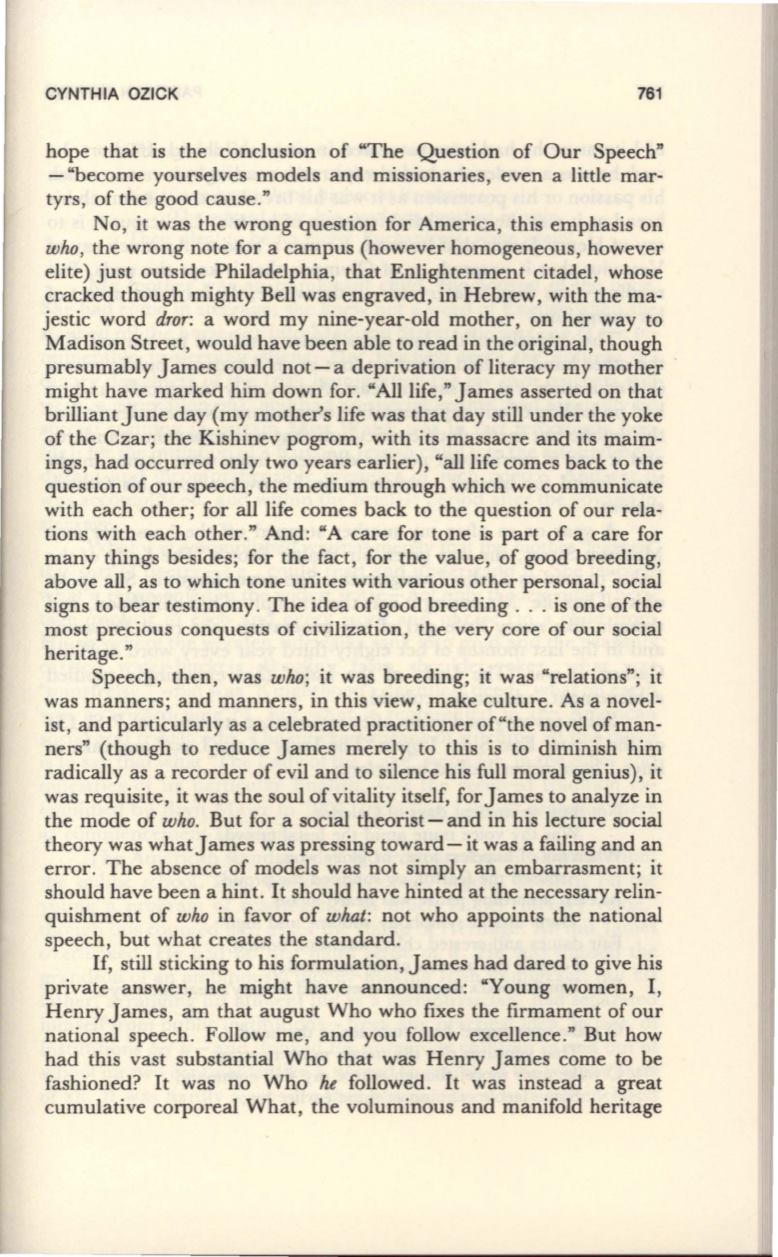
CYNTHIA OZICK
761
hope that is the conclusion of "The Question of Our Speech"
-"become yourselves models and missionaries, even a little mar–
tyrs, of the good cause."
No, it was the wrong question for America, this emphasis on
who,
the wrong note for a campus (however homogeneous, however
elite) just outside Philadelphia, that Enlightenment citadel, whose
cracked though mighty Bell was engraved, in Hebrew, with the ma–
jestic word
dror:
a word my nine-year-old mother, on her way to
Madison Street, would have been able to read in the original, though
presumably James could not- a deprivation of literacy my mother
might have marked him down for. "All life," James asserted on that
brilliant June day (my mother's life was that day still under the yoke
of the Czar; the Kishinev pogrom, with its massacre and its maim–
ings, had occurred only two years earlier), "all life comes back to the
question of our speech, the medium through which we communicate
with each other; for all life comes back to the question of our rela–
tions with each other." And: "A care for tone is part of a care for
many things besides; for the fact, for the value, of good breeding,
above all, as to which tone unites with various other personal, social
signs to bear testimony. The idea of good breeding ... is one of the
most precious conquests of civilization, the very core of our social
heritage."
Speech, then, was
who;
it was breeding; it was "relations"; it
was manners; and manners, in this view, make culture. As a novel–
ist, and particularly as a celebrated practitioner of"the novel of man–
ners" (though to reduce James merely to this is to diminish him
radically as a recorder of evil and to silence his full moral genius), it
was requisite, it was the soul of vitality itself, for James to analyze in
the mode of
who.
But for a social theorist- and in his lecture social
theory was what James was pressing toward- it was a failing and an
error. The absence of models was not simply an embarrasment; it
should have been a hint. It should have hinted at the necessary relin–
quishment of
who
in favor of
what:
not who appoints the national
speech, but what creates the standard.
If,
still sticking to his formulation, James had dared to give his
private answer, he might have announced: "Young women, I,
Henry James, am that august Who who fixes the firmament of our
national speech. Follow me, and you follow excellence." But how
had this vast substantial Who that was Henry James come to be
fashioned? It was no Who
he
followed. It was instead a great
cumulative corporeal What, the voluminous and manifold heritage


